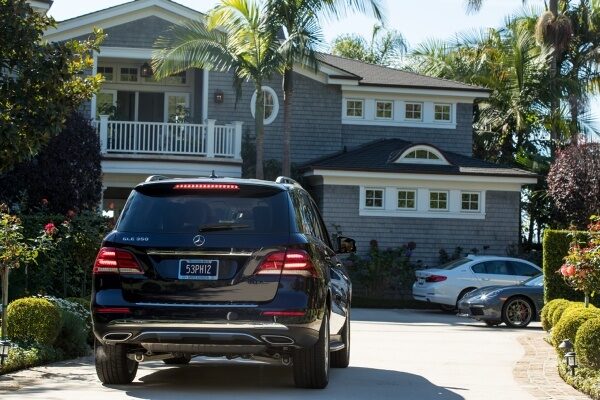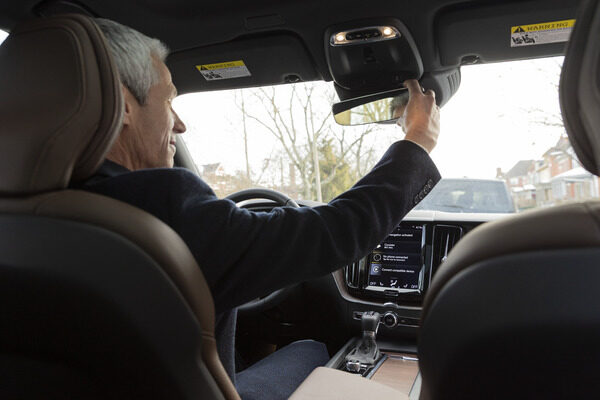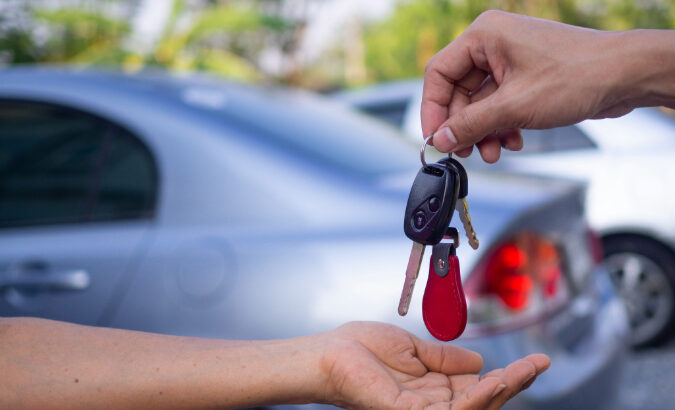
Have you ever been confused as to the sounds coming from your vehicle when you brake? From grinding and rattling to thumping and squealing, you can learn how to decode the sounds, pinpoint their root causes, and figure out what they might mean for the health of your car.
4 Common brake noises and their causes
During a commercial vehicle inspection spanning three countries on April 19, 2023, 11.3% of the vehicles inspected were marked as unfit and unsafe for roadways. Among those from the U.S., 11.5% of them were out of service for brake-related violations.[1] Even if you don’t drive a commercial vehicle, you need to know if your car’s brakes are fit for the road. Here are the top noises to listen for that could indicate a brake-related issue in your car:
1. Grinding noise when braking
Grinding noises indicate worn-out brake pads and probably mean that their metal braking plates are rubbing against the brake rotors. If this happens, your brakes won’t work as well and can result in an increased stopping distance and a higher chance of collisions. If left too long, it may damage your rotors or other braking system components. [2]
2. Rattling noise when braking
When you hear a rattling noise, this often indicates loose or worn components in the brake system. This could range from worn brake pads to loose calipers or even issues with the brake shims. If brake pads are too worn, this can result in a warped or distorted rotor, causing a rattle when you hit the brake. [3]
3. Thumping sound when braking
If there’s an issue with the brake drum or rotors, this often results in a thumping sound due to uneven surfaces caused by wear and tear. When the thumping is coming from the front wheels, this can mean your brake rotors are warped or deformed. [2]
4. Squeaking or squealing noise when braking
There are a variety of things that can cause squeaking or squealing while braking, including worn-out brake pads, glazed rotors, dirty brakes, insufficient brake lining or no lubrications on the brakes. If you notice a high-pitched sound while braking, take your car to a professional immediately. [4]
Symptoms of bad brakes
Look out for these top symptoms your brakes could be unsafe and going bad, then take your car into a mechanic:
- Your brake light is on
- You hear squeaking or squealing while braking
- You feel steering wheel vibrations while braking
- Fluid is leaking
- The brake pedal feels soft or spongy
- You notice a burning smell while driving
- The car pulls to one side [5]
How often should you have your brakes checked?
A good rule of thumb is to get your brakes inspected at least once a year. If you don’t drive that much, you are using good brake pads or you have good driving habits, you might not need to have them replaced that often. [4] For other info on when to take your car in for maintenance, reference our checklist. Lastly, remember to protect yourself and your vehicle with the proper auto insurance for you.
Sources:
[1] “Inspectors Remove More Than 750 Commercial Motor Vehicles with Brake Violations from Roadways During CVSA’s Unannounced Brake Safety Day,” cvsa.org/news/2023-bsd-results (Accessed May 25, 2023).
[2] “Why Are My Brakes Making Noise?” classictoyotatyler.com/why-are-my-brakes-making-noise (Accessed Feb. 3, 2022).
[3] “What Do Those Car Braking Noises Mean,” championautoparts.com/en-eu/news/what-do-braking-noises-mean.html (Accessed Oct. 19, 2023).
[4] “Top 10 Causes Of Brake Noise (With Solutions & FAQs),” repairsmith.com/blog/brake-noise (Accessed Oct. 19, 2023).
[5] “7 Warning Signs That Your Brakes Are Unsafe,” nubrakes.com/blog/7-signs-of-unsafe-brakes (Accessed Oct. 19, 2023).
Disclaimer:
The information included here is designed for informational purposes only. It is not legal, tax, financial or any other sort of advice, nor is it a substitute for such advice. The information may not apply to your specific situation. We have tried to make sure the information is accurate, but it could be outdated or even inaccurate in parts. It is the reader’s responsibility to comply with any applicable local, state or federal regulations. Nationwide Mutual Insurance Company, its affiliates and their employees make no warranties about the information nor guarantee of results, and they assume no liability in connection with the information provided. Nationwide and the Nationwide N and Eagle are service marks of Nationwide Mutual Insurance Company. © 2024 Nationwide



